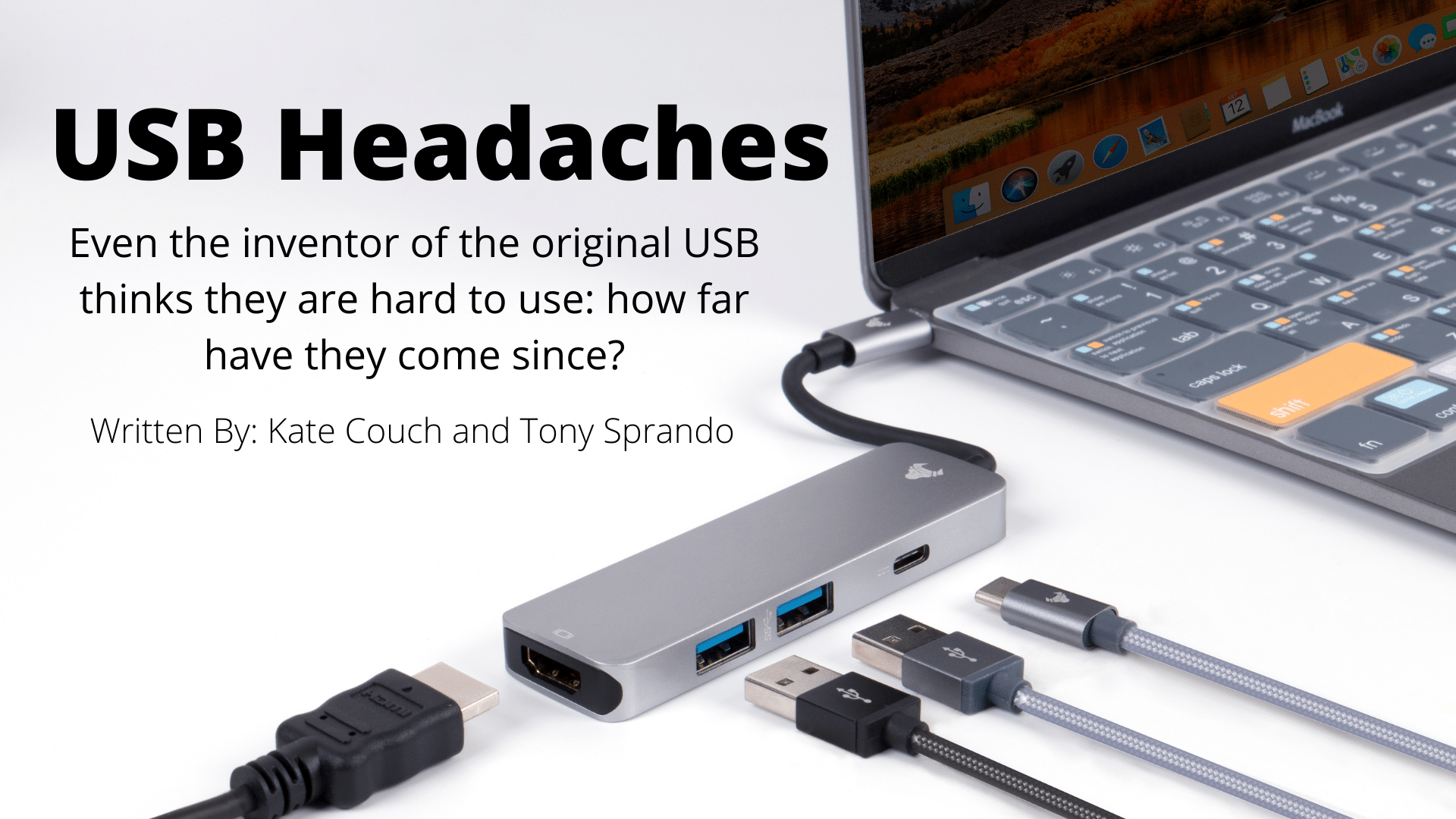USB Headaches
Even the inventor of the original USB thinks they’re hard to use: how far has USB come since?
Written By: Tony Sprando
In 2019 Fox News reported the following “Ajay Bhatt, who led the Intel team that created the Universal Serial Bus, told NPR the design of USB ports used to plug in devices such as keyboards, mice, printers and thumb drives is a bit annoying. Frustrated users have created several memes over the years mocking USB devices.” in this article.
It is quite humerus and humble of Bhatt to come out and say this to the world who uses his invention daily. He is referring to the design of the USB which can only be plugged in one way. However, since Bhatt invent the first USB we have come up with faster and newer models.
After the first USB (1.1) was the USB 2.0 which came out in the year 2000. USB 2.0 delivers a maximum transfer speed of 480 Megabits per second compared to the 12 Mbps (megabytes per second) of the original 1.1 USB. 10 years later the USB 3.0 came out. The USB 3.0 was a drastic step up. It delivers 640 Mbps and is 10 times faster. With these improvements, the ability of the USB and USB ports expanded.
The reason why this continuous improvement with extended bandwidth in the USB timeline is so significant is that with every improvement made, the USB can support more technology. The USB 3.0 is the business-class video conferencing standard. USB 3.0 is needed to pass 4k video camera content/webcams, ptz cams, etc. Originally USB could only support low-bandwidth devices like keyboards mouses and printers but now USB can support things like 4K video, excessive amounts of storage, as well as laptop and device charging.
In 2014 USB-C came out. It too was a much faster improvement at 10Gbps which is on the scale of the billions where Mbps is on the scale of the millions. USB 3.0 has a capacity of 5 Gbps making the USB-C twice the speed as its predecessor. The most remarkable thing about the USB-C is that it is reversible. This fixes the 20-year problem of the non-reversible USB that has been long made fun of. It really is ironic that it took us 20 years to fix such an obvious problem but luckily those are all problems of the past! Both the USB 3.0 and the USB-C are used in today’s technology as they are both high bandwidth supporting and extremely fast.
The interesting thing about technology is that even though the USB-C is the freshest thing out there right now in less than five years we will probably have something new and wouldn’t even be able to imagine using the USB-C. The audio-visual world is constantly changing and keeping up with it isn’t always easy. The important thing to keep in mind is to constantly be checking in for new trends and tech; on pages like this or other sites from around the web.
Thanks For Reading!
*This article is Tony Sprando of AV Bends intellectual property. To use or reference this article please contact: Tony@avbend.com*
To know more about Tony and his professional profile see these:
https://www.linkedin.com/in/tonysprando/

